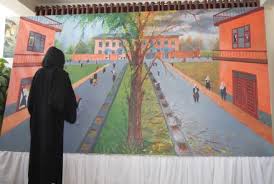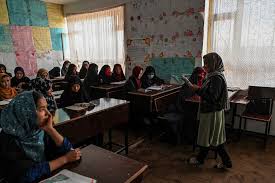Why have the Taliban closed schools for girls?

The closure of schools for girls by the Taliban is usually done for ideological and political reasons that may be challenging to understand. Some possible reasons include the following:
-
Religious interpretations: The Taliban act on the basis of certain interpretations of the Islamic religion, which may believe that higher education for girls is not compatible with Islamic principles. These interpretations may lead to decisions such as closing schools for girls.
-
Social restrictions: The Taliban may believe that girls should be educated at home and in the family bed, and their entry into the public space of schools may weaken social values and imitation.
-
Fear of foreign cultural influences: The Taliban may be concerned about educating girls in western or foreign ways and values and want to keep these types of influences away from their society.
-
More control over the society: By closing schools for girls, the Taliban can have the most control over their communities and can transmit their values and beliefs to the youth generation in the best possible way.
In general, the Taliban’s decisions to close schools for girls are complex and can be justified from their cultural, social, and political perspectives. But this action may limit girls’ access to education and their development in society, which will have profound effects on the future of Afghanistan.

Why did the Taliban close grades above six?
The closure of higher classes by the Taliban may happen for several reasons, which are usually considered gradual and according to political and ideological conditions. Below are some important reasons for the closure of higher classes by the Taliban:
-
Religious and ideological interpretations: The Taliban act based on certain interpretations of Islam and their ideologies. They may believe that higher professions (such as law, medicine, engineering, etc.) are not compatible with Islamic values and principles and may conflict with their religious teachings.
-
Ideological limitations: The Taliban may be concerned about the upper castes that can bring non-Islamic or foreign influences to their society. They may want to keep these types of influences away from their society and justify closing these classes for ideological reasons.
-
Providing labor for their needs: The Taliban may need skilled labor in areas such as construction, health, education, and other services to meet their needs. Closing higher classes may help them attract skilled labor for their purposes.
-
More control over the society: By closing the higher classes, the Taliban can have the most control over their economy and society. This can allow them to impose their values and beliefs on their society in the best possible way.
-
Economic limitations: The Taliban may propose to close the higher classes as a way to manage resources and economic expenses in the face of economic problems and international sanctions.
In general, the closure of higher classes by the Taliban is the result of a combination of ideological, political, economic and social factors, which are determined based on their conditions and goals. These decisions usually lead to serious changes in societies and can have profound effects on individuals and the economy.
Has the holy religion of Islam imposed restrictions on women’s education?
Islam, like other religions, has regulations and teachings about education and training. In the Quran and Islamic hadiths, there is an emphasis on education for all people, including women. It is important that Islam grants women equal rights in access to education and knowledge. Below is an explanation of this topic:
-
Education and knowledge in Islam: Islam emphasizes education and knowledge and affirms this right for all people, women and men. It is stated in the Holy Qur’an: “Ask them about what they have knowledge of, if you do not know.” (Surah Al-Nahl, verse 43) This verse shows the importance of knowledge and education in Islam.
-
Women’s rights in education: Islam grants women full rights in the field of education. The Prophet of Islam (peace and blessings of Allah be upon him) emphasizes in his hadiths that “seeking knowledge is obligatory for every Muslim.” This point shows the importance of education for all Islamic people, including women.
-
Historical and cultural obstacles: However, it should be noted that in history and in some societies, for cultural and historical reasons, women may face obstacles in accessing education. These obstacles are usually related to social and cultural interpretations of Islam and not to the main religious principles.
-
Different interpretations: Like other religions, Islam also has various interpretations, and sometimes individual or group interpretations of the religion can lead to cultural differences or limitations in access to education for women.
Therefore, in general, the religion of Islam confirms women’s full rights in the field of education and training. However, in some cases, cultural and social interpretations may cause restrictions or obstacles in this field that are not in accordance with the main principles of Islam.